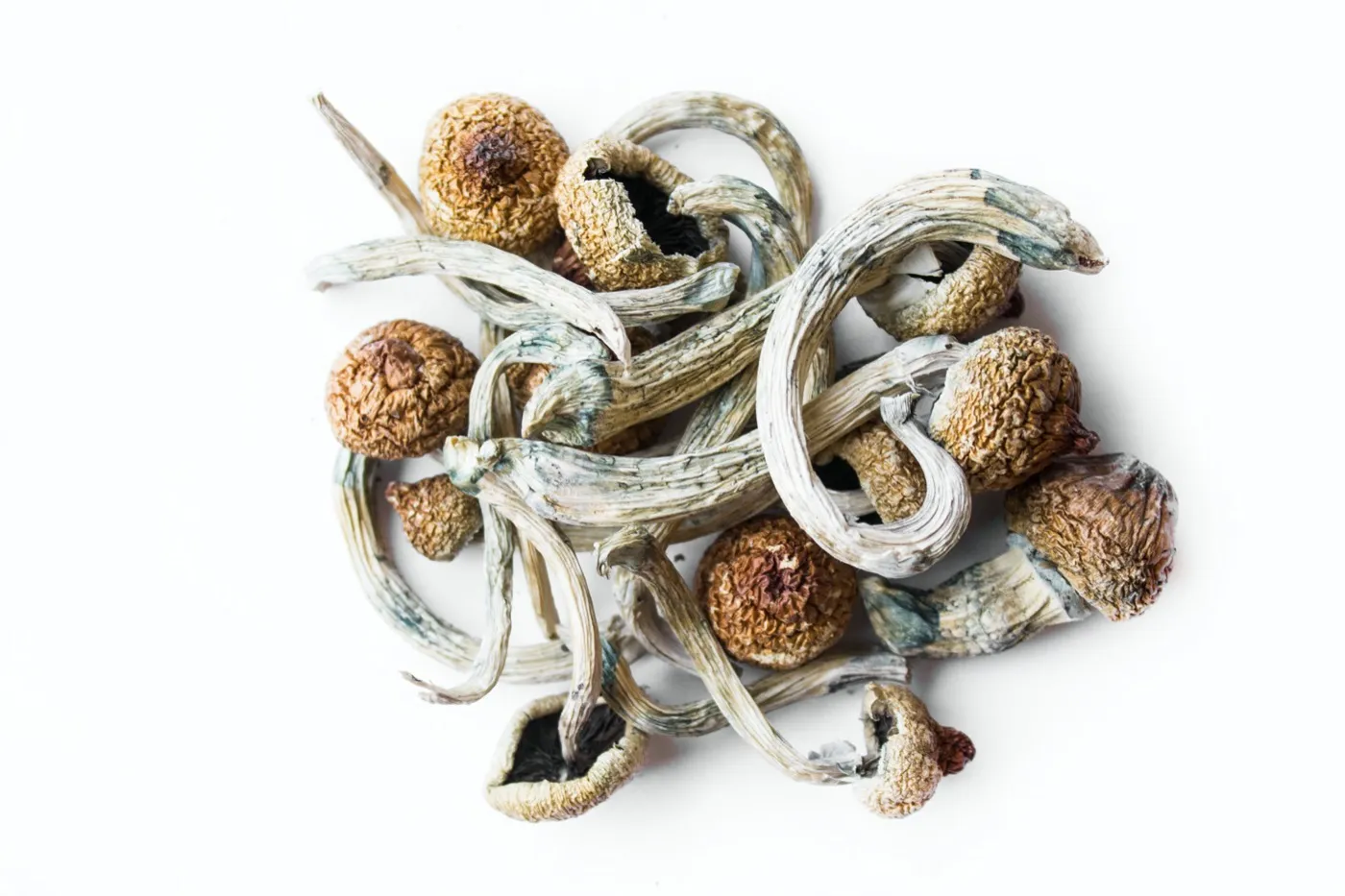Psychedelics like LSD and psilocybin may improve sexual function for months after use, according to a study conducted by the Centre for Psychedelic Research at Imperial College London.

Dried psilocybin mushrooms.
This research marks the first known scientific investigation into the long-term effects of psychedelics on sexual health. Participants in the study reported significant improvements across various aspects of sexual functioning, including satisfaction, arousal, and connection with their partners, with benefits lasting up to six months after their psychedelic experiences.
Published in Nature Scientific Reports, the study gathered responses from nearly 300 individuals before and after their use of psychedelics. The research combined data from two groups: individuals who consumed psychedelics recreationally or ceremonially and participants in a clinical trial examining psilocybin as a treatment for depression. This combination allowed the researchers to assess the impact of psychedelic experiences on multiple dimensions of sexual health.
Participants reported improvements in enjoyment of sex, sexual arousal, satisfaction with their physical appearance, attraction to their partner, and communication. Among those taking psilocybin in the clinical trial for depression, nearly half noted enhanced arousal, interest, and satisfaction. In contrast, individuals treated with escitalopram, a leading antidepressant, more often reported declines in sexual functioning—a common side effect of such medications.
The findings suggest potential therapeutic applications for psychedelics, including use in couples therapy and as a treatment for depression-related sexual dysfunction. Sexual side effects are a leading reason patients discontinue antidepressants, often resulting in relapse. By mitigating these side effects, psychedelics like psilocybin could offer an alternative pathway for improving mental health while preserving or even enhancing sexual well-being.
According to Tommaso Barba, the study’s lead author, the research highlights the interplay between psychological well-being and sexual health. Barba emphasized that sexual dysfunction negatively affects mental health, relationship satisfaction, and overall happiness, making this area of study crucial. He also noted that while this research delves into the lasting effects of psychedelics, it does not focus on their influence during the psychedelic experience itself.
The study’s findings revealed that participants treated with psilocybin reported significantly fewer instances of sexual dysfunction—13% compared to 59% in the escitalopram group. Improvements in arousal, satisfaction, and communication were particularly prominent. Both groups reported enhanced satisfaction with physical appearance, but the psilocybin group consistently outperformed the antidepressant group in all other measures of sexual health.
Researchers noted that psychedelics might not increase the perceived importance of sex or lead to hyper-arousal but may instead foster a more profound sense of connection and intimacy. This could explain the reported improvements in sexual well-being without causing an excessive focus on sexual activity.
The study acknowledges certain limitations. Most participants were white, heterosexual, employed, and well-educated, which may restrict the generalizability of the findings. Additionally, the data relied on self-reported questionnaires, which can introduce biases.
Barba stressed the importance of controlled conditions for psychedelic use, especially in clinical settings. Self-medicating with psychedelics without proper safeguards may lead to unpredictable outcomes. He emphasized that while the findings are promising, more research is needed before psychedelics can be fully integrated into therapeutic contexts.
Dr. David Erritzoe, Clinical Director of the Centre for Psychedelic Research, remarked that the study underscores the potential for psychedelics to influence a broad range of psychological functions. However, he noted that their clinical application remains distant as further research is required.
The clinical trial received support from the Alexander Mosley Charitable Trust and Imperial College London’s Centre for Psychedelic Research. These findings open new avenues for understanding how psychedelics can address both mental health and sexual well-being, offering hope for alternative treatments that enhance overall quality of life.







